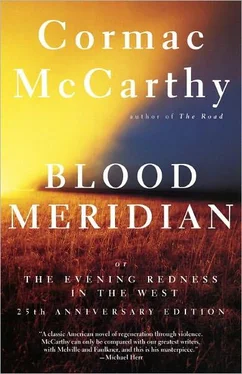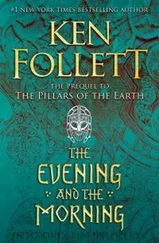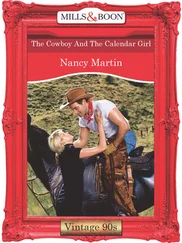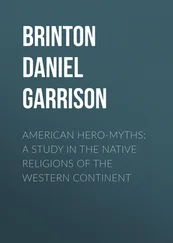Prewett nodded toward the crumbling mud parapet. He was up yonder. I didnt know what he was. Still dont. I shot the son of a bitch out of there.
Glanton looked at the judge.
I think he was an imbecile, the judge said.
Glanton led his horse through the church and out by a small door in the nave into the yard. He was sitting there when they brought the other hermit out. Jackson prodded him forward with the barrel of his rifle, a small thin man, not young. The one they’d killed was his brother. They had jumped ship on the coast long ago and made their way to this place. He was terrified and he spoke no english and little Spanish. The judge spoke to him in german. They had been here for years. The brother had his wits stole in this place and the man now before them in his hides and his peculiar bootees was not altogether sane. They left him there. As they rode out he was trotting up and back in the yard calling out. He seemed not to be aware that his brother was dead in the church.
The judge caught Glanton up and they rode side by side out to the road.
Glanton spat. Ort to of shot that one too, he said.
The judge smiled.
I dont like to see white men that way, Glanton said. Dutch or whatever. I dont like to see it.
They rode north along the river trace. The woods were bare and the leaves on the ground clutched little scales of ice and the mottled and bony limbs of the cottonwoods were stark and heavy against the quilted desert sky. In the evening they passed through Tubac, abandoned, wheat dead in the winter fields and grass growing in the street. There was a blind man on a stoop watching the plaza and as they passed he raised his head to listen.
They rode out onto the desert to camp. There was no wind and the silence out there was greatly favored by every kind of fugitive as was the open country itself and no mountains close at hand for enemies to black themselves against. They were caught up and saddled in the morning before light, all riding together, their arms at the ready. Each man scanned the terrain and the movements of the least of creatures were logged into their collective cognizance until they were federated with invisible wires of vigilance and advanced upon that landscape with a single resonance. They passed abandoned haciendas and roadside graves and by midmorning they had picked up the track of the Apaches again coming in off the desert to the west and advancing before them through the loose sand of the riverbottom. The riders got down and pinched up samples of the forced sand at the rim of the tracks and tested it between their fingers and calibrated its moisture against the sun and let it fall and looked off up the river through the naked trees. They remounted and rode on.
They found the lost scouts hanging head downward from the limbs of a fireblacked paloverde tree. They were skewered through the cords of their heels with sharpened shuttles of green wood and they hung gray and naked above the dead ashes of the coals where they’d been roasted until their heads had charred and the brains bubbled in the skulls and steam sang from their noseholes. Their tongues were drawn out and held with sharpened sticks thrust through them and they had been docked of their ears and their torsos were sliced open with flints until the entrails hung down on their chests. Some of the men pushed forward with their knives and cut the bodies down and they left them there in the ashes. The two darker forms were the last of the Delawares and the other two were the Vandiemenlander and a man from the east named Gilchrist. Among their barbarous hosts they had met with neither favor nor discrimination but had suffered and died impartially.
They rode that night through the mission of San Xavier del Bac, the church solemn and stark in the starlight. Not a dog barked. The clusters of Papago huts seemed without tenant. The air was cold and clear and the country there and beyond lay in a darkness unclaimed by so much as an owl. A pale green meteor came up the valley floor behind them and passed overhead and vanished silently in the void.
At dawn on the outskirts of the presidio of Tucson they passed the ruins of several haciendas and they passed more roadside markers where people had been murdered. Out on the plain stood a small estancia where the buildings were still smoking and along the segments of a fence constructed from the bones of cactus sat vultures shoulder to shoulder facing east to the promised sun, lifting one foot and then the other and holding out their wings like cloaks. They saw the bones of pigs that had died in a claywalled lot and they saw a wolf in a melonpatch that crouched between its thin elbows and watched them as they passed. The town lay on the plain to the north in a thin line of pale walls and they grouped their horses along a low esker of gravel and surveyed it and the country and the naked ranges of mountains beyond. The stones of the desert lay in dark tethers of shadow and a wind was blowing out of the sun where it sat squat and pulsing at the eastern reaches of the earth. They chucked up their horses and sallied out onto the flat as did the Apache track before them two days old and a hundred riders strong.
They rode with their rifles on their knees, fanned out, riding abreast. The desert sunrise flared over the ground before them and ringdoves rose out of the chaparral by ones and by pairs and whistled away with thin calls. A thousand yards out and they could see the Apaches camped along the south wall. Their animals were grazing among the willows in the periodic river basin to the west of the town and what seemed to be rocks or debris under the wall was the sordid collection of leantos and wickiups thrown up with poles and hides and wagonsheets.
They rode on. A few dogs had begun to bark. Glanton’s dog was quartering back and forth nervously and a deputation of riders had set out from the camp.
They were Chiricahuas, twenty, twenty-five of them. Even with the sun up it was not above freezing and yet they sat their horses half naked, naught but boots and breechclouts and the plumed hide helmets they wore, stoneage savages daubed with clay paints in obscure charges, greasy, stinking, the paint on the horses pale under the dust and the horses prancing and blowing cold. They carried lances and bows and a few had muskets and they had long black hair and dead black eyes that cut among the riders studying their arms, the sclera bloodshot and opaque. None spoke even to another and they shouldered their horses through the party in a sort of ritual movement as if certain points of ground must be trod in a certain sequence as in a child’s game yet with some terrible forfeit at hand.
The leader of these jackal warriors was a small dark man in cast-off Mexican military attire and he carried a sword and he carried in a torn and gaudy baldric one of the Whitneyville Colts that had belonged to the scouts. He sat his horse before Glanton and assessed the position of the other riders and then asked in good Spanish where were they bound. He’d no sooner spoken than Glanton’s horse leaned its jaw forward and seized the man’s horse by the ear. Blood flew. The horse screamed and reared and the Apache struggled to keep his seat and drew his sword and found himself staring into the black lemniscate that was the paired bores of Glanton’s doublerifle. Glanton slapped the muzzle of his horse twice hard and it tossed its head with one eye blinking and blood dripping from its mouth. The Apache wrenched his pony’s head around and when Glanton spun to look at his men he found them frozen in deadlock with the savages, they and their arms wired into a construction taut and fragile as those puzzles wherein the placement of each piece is predicated upon every other and they in turn so that none can move for bringing down the structure entire.
The leader was the first to speak. He gestured at the bloodied ear of his mount and spoke angrily in apache, his dark eyes avoiding Glanton. The judge pushed his horse forward.
Читать дальше












